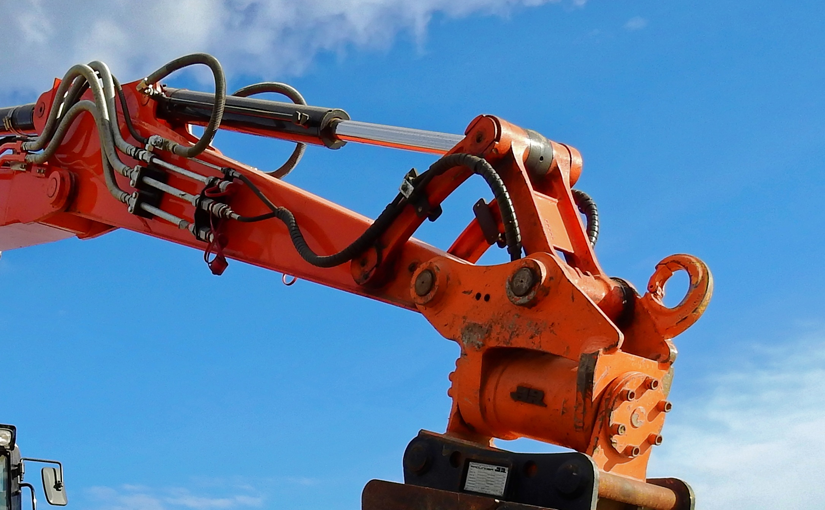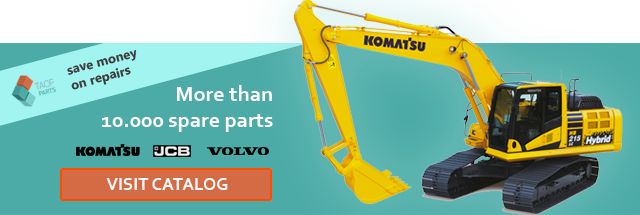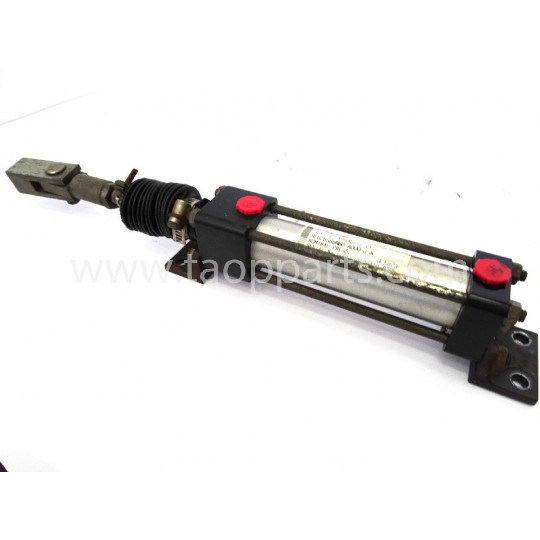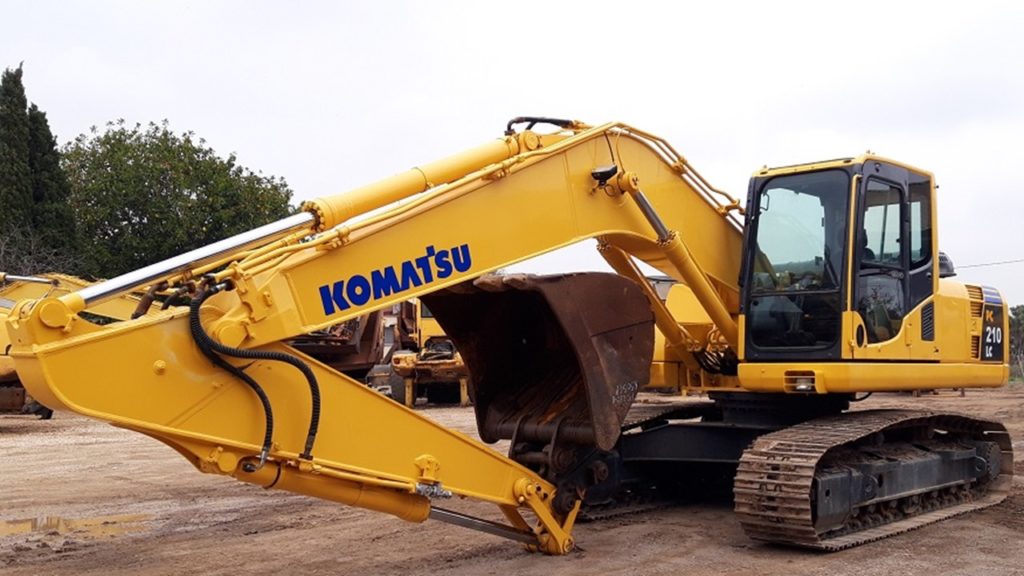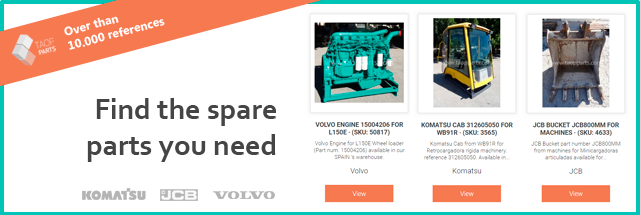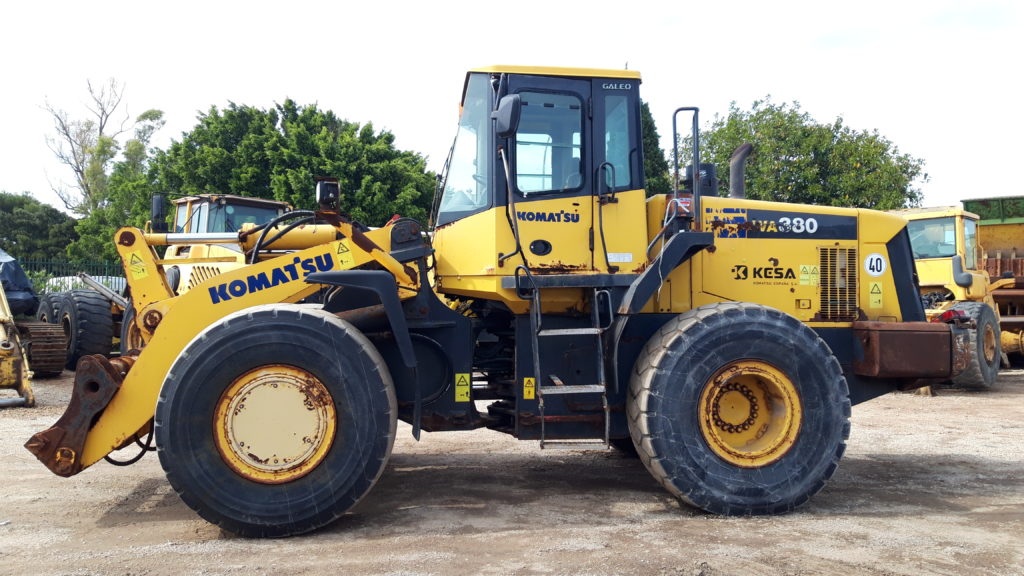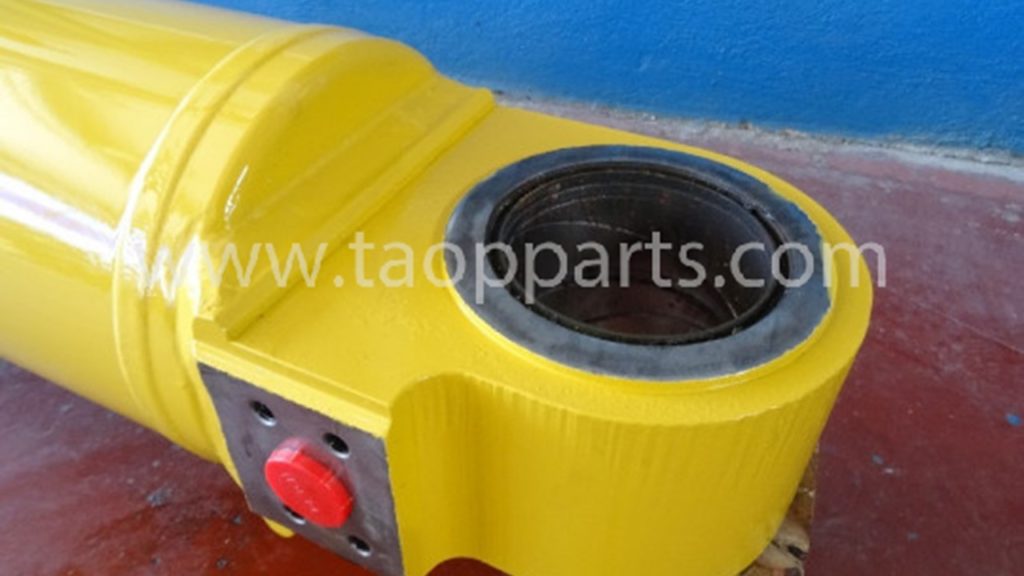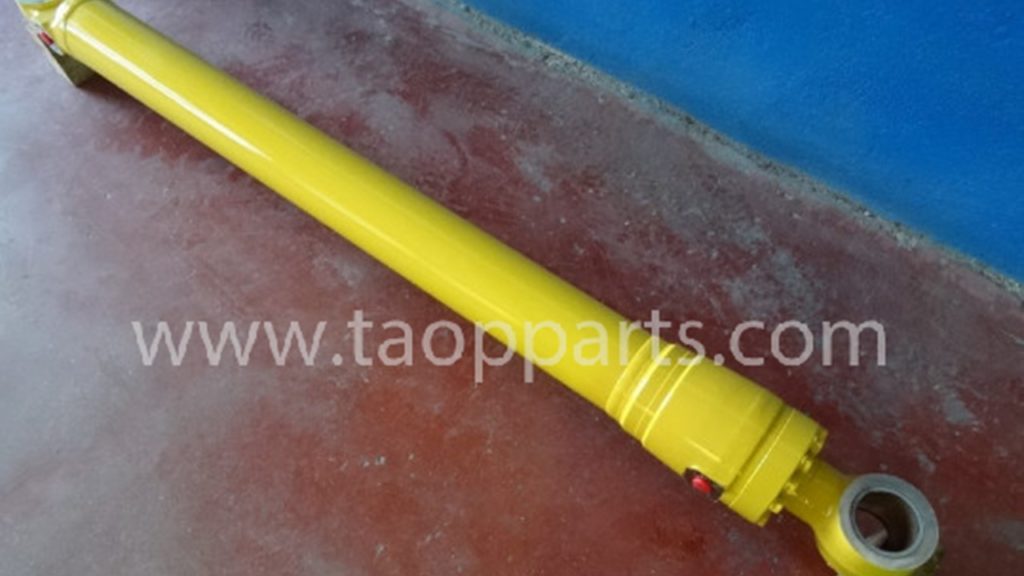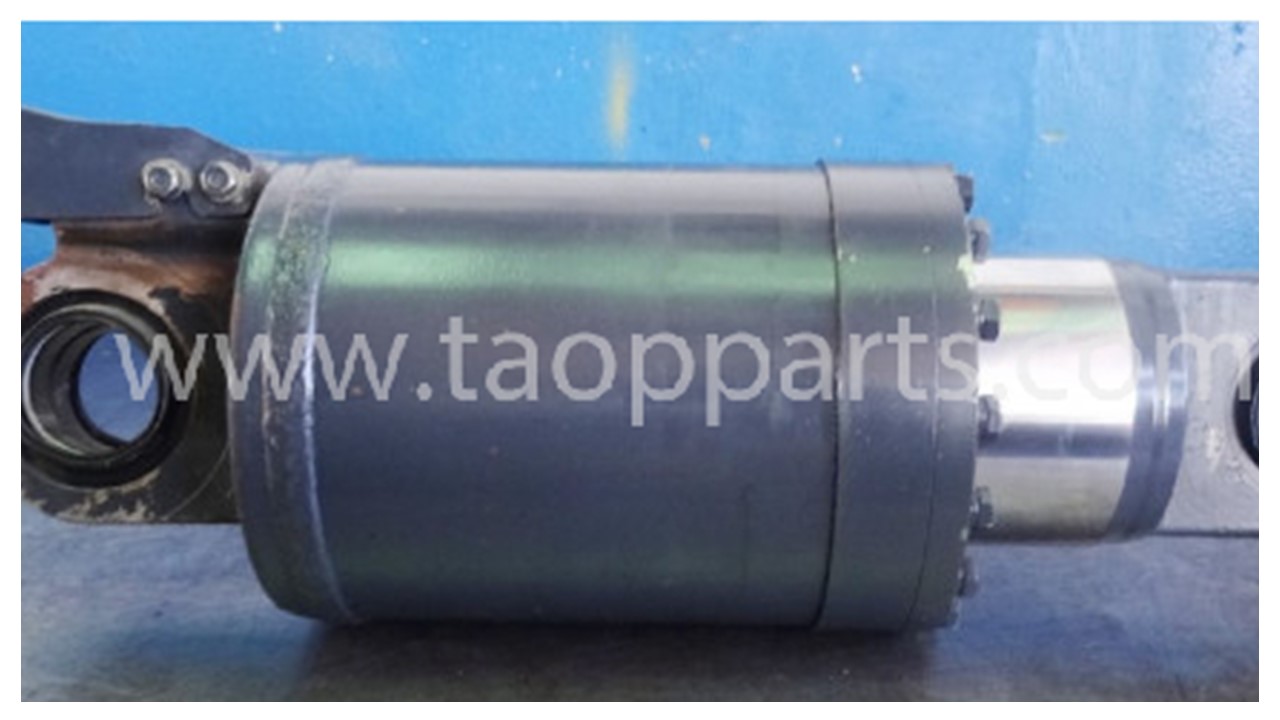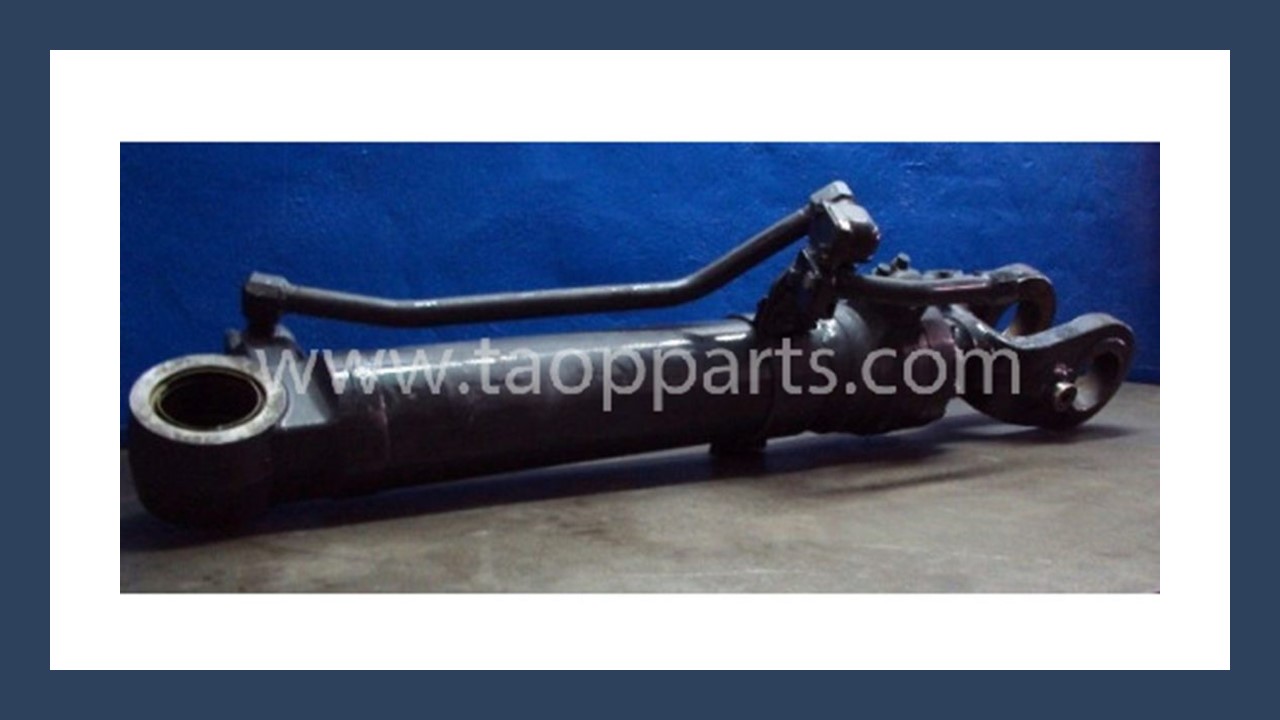Taop Parts offers hydraulic cylinders recovered from original machines, which have been tested and are ready to be installed.
Hydraulic cylinders are important components in earth-moving machines, such as excavators and wheel loaders, as they transform hydraulic force into linear movement, by facilitating the lifting and moving of heavy materials.
The cylinder works thanks to the hydraulic system, consisting of pumps, pipes and hydraulic fluid.
A hydraulic cylinder is a tube closed at one end with a rod that moves inside. Inside the cylinder we find a piston. The piston separates the internal side of the cylinder from the external one. The fluid moves to both sides of the cylinder to extend or retract the rod.
Hydraulic cylinders can push, pull and lift different types of loads with different weights and sizes.
Table of Contents
HOW DOES the excavator use hydraulic energy?
The hydraulic excavator, like Komatsu or Volvo excavators, is driven by a hydraulic system, in which the hydraulic fluid is transmitted through the machine to various hydraulic motors and cylinders and pressurized according to the current resistance. The fluid is controlled directly or automatically by the control valves and is distributed through the pipes.
Due to the large amount of energy that can be transferred through small pipes and hoses and the high-power density and wide range of cylinders, excavators get great power for performing heavy earthmoving work.
How does a hydraulic cylinder work in an excavator?
Inside the hydraulic cylinder there is a rod, which is located inside the cylinder, and a piston, which is located at the end of the rod and allows the arm to move with the help of hydraulic fluid.
The hydraulic fluid is pumped through the end of the piston which pushes the piston and moves the rod through the cylinder. This creates great force with the consequent fluctuation of the hydraulic pressure differential of each arm and of the bucket cylinder, thus creating the movement of one or both parts of the arm. By controlling the amount of liquid being pumped through the valve, arm movement can be easily performed. This movement is activated by the use of control valves located inside the cabin.
Typical cylinders found in excavators and shovels.
There are different types of cylinders in wheel loaders and excavators, each with its very important function.
Bucket cylinder
The bucket cylinder allows the movement of the bucket or any other accessory mounted on the quick coupler.
Lift cylinder
The purpose of the lift cylinder is to allow the arm to move and verify the effort made by the machine while lifting the materials.
Arm cylinder
The arm cylinder allows the excavation movement through the controls, and to define the ideal position of the same in relation to the type of work to be performed.
Suspension cylinder
The suspension cylinders are used for the hydropneumatics suspension of the excavator frame and are used to dampen the oscillations of the lower frame or slow down the movement.
Steering cylinder
Allows you to drive the excavator in the desired direction.
For more information on our hydraulic cylinders, contact our sales agents: info@taopparts.com
Links of interest:
